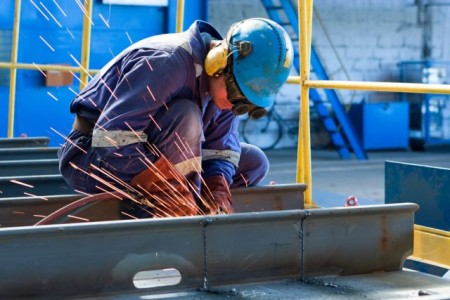North Charleston has seen some recent disputes over organization intentions of the aerospace machinists. South Carolina’s 116th governor publicly spoke out this year against bringing any unionized manufacturing workforces into the state, though there are already 33 unions represented across the S.C. employment picture.
Politics aside, the levels of danger in manufacturing jobs can be very intense – aerospace included, as it often involves extreme physical labor as well as hazardous materials such as beryllium copper. Assessing the general union perspective on safety of workers in this particular field, we spoke with James Carlson, the communications representative for the International Association of Machinists and Aerospace Workers (IAM) Transportation Department.
Ann Bailey: James, what does it mean to be part of the Transportation Department?
James Carlson: The International Association of Machinists and Aerospace Workers headquarters is right outside of Washington, D.C. The machinists union represents workers in many, many different industries and sectors, and is broken down into territories. Our territory, if you will, our department deals solely with airlines and railroads all over the country. We have many members all over the country, and we have local lodges in every state in the United States and Canada and Guam and Puerto Rico.
AB: What would you say is the biggest effect the union has on the whole aviation industry?
JC: Well, it’s no secret that unionized workers make more money than do nonunion workers. They have better medical benefits, dental benefits. They are more likely to have a defined benefit pension plan, so those are the facts. Unions have a big effect on working families’ ability to ascend into the middle class, and it would be as true in Charleston as anywhere else in the country that if you’re in a union, its affiliated machinist union, your standard of living is going to be higher than if you aren’t in a union.
When you belong to a union, the unions have a direct involvement in creating safety standards, implementing best practices and also enforcing safety standards and acting as a watchdog and protecting workers. And it’s no secret that unionized workers, again, are better protected at the workplace through various safety committees and things that pertain to union contracts that make the workplace safer.
AB: If a worker is injured, what are the steps the union can take to help them?
JC: In many IAM contracts, IAM labor agreements, workers have full replacement pay if they become injured on the job, and many other workers in other industries who are nonunion many times don’t have that. They go on the state workers’ compensation system, and many times that doesn’t replace their pay. Also, you’re having an advocate at the workplace to help guide you through the red tape and bureaucracy and to deal with management who might say that the injury didn’t happen on the job or that you were responsible for getting hurt and try to discipline the employee for getting hurt on the job.
So, having an advocate at the workplace, having a union at the workplace not only protects your rights but also, through the contract, gets you full replacement pay. We have that in many of our contracts, so those two things right there are a big difference from what happens in nonunion environments.
AB: How does the union help when an accident happens?
JC: If someone gets injured, the union gets involved to remedy the dangerous situation. In most IAM contracts in the airline industry and the railroads, we have a contractual right to have a safety committee and those safety committees work in tandem with the company. And they have a real impact on making the workplace safer.
For example, at United Airlines they have a system called the station operation safety awareness program in which, if an employee sees a hazard on the job, they immediately can input that into a computer program and it’s a sort of form you fill out. Then, an email message is sent to a union representative, a representative from the FAA, and a company representative, and they review it, and then they contact the management of that particular station and remedy the problem.
That’s just one example of unions working with companies to make the workplace safer and to basically incentivize safety at the workplace, because when there is no counterweight, companies many times look to cut corners, and speed-up, and things of that nature that make the workplace environment more hazardous.
AB: What about representation in any kind of injury? How does union membership affect workman’s comp claims?
JC: Well, in a unionized environment, you have an advocate at your side, so if you do get injured, more often than not the union representative will document in real-time what exactly occurred, where it occurred, when it occurred, how it occurred, and that will aid you in any compensation case. Each state has their own particular workers’ comp laws. But, having an advocate to help guide you through the process is important.
AB: And what about legal help if it becomes necessary to file a suit in your claim?
JC: Usually the union will help guide you – we don’t act as attorneys, because we’re not workers’ comp attorneys. However, many local lodges have relationships with law firms that deal with these kind of issues, and it is advisable for employees, if they get injured on the job, to speak to a workers’ comp attorney.
Attorneys at the South Carolina law firm of Christmas Injury Lawyers, who represent on-the-job injury compensation claims, advise that job injuries can be both accident-related and repetitive aggravation (trauma)-related, and are both served by legal counsel.


